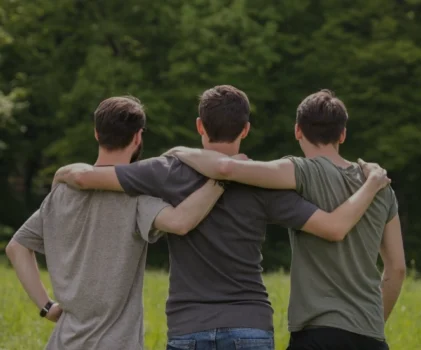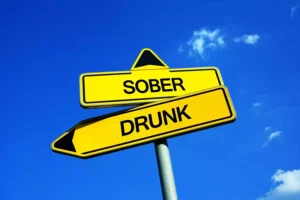Regular nightcaps can lead to diminished rest, insomnia, and a heightened risk of harmful alcohol dependence. And though it may help in the short term, drinking alcohol before bed can actually lead to a night of horrible, restless sleep. Reducing your alcohol intake, especially in the hours leading up to your bedtime, can help you wake up well-rested and energized in the morning. In addition, since poor sleep can negatively affect one’s health, the benefits of a restful night go beyond feeling alert in the morning. While this may work for a short time, typically, more alcohol is needed to accomplish this over time.
How does alcohol affect your sleep?
- If you’re healthy, moderate alcohol use shouldn’t affect how well an antibiotic works, notes Dr. Clayton.
- But the truth is, drinking regularly—even moderate drinking—is much more likely to interfere with your sleep than to assist it.
- If a person chooses to consume alcohol, drinking in moderation several hours before bed is the best practice for avoiding sleep disturbances.
- Treatment providers are available 24/7 to answer your questions about rehab, whether it’s for you or a loved one.
- While a drink now and then may have a sedative effect that causes you to drift off faster, research shows that it can impede sleep quality in the long run.
But it can actually end up robbing you of a good night’s rest — or worse, could cause some challenging sleep problems. Chronic sleep problems were defined as those when participants who reported a sleep problem (based on the above dichotomy) at three or more data collection phases over the follow-up period. If you’re turning to alcohol to help you sleep, you may be making the quality of your sleep worse. Many of us find ourselves tossing and turning at night, trying to get that elusive 7 to 8 hours of sleep experts say we need but never finding it. So while cutting out drinking will likely benefit your sleep, there may be other factors affecting your shuteye. Although there’s no evidence that alcohol can cause narcolepsy (sleepwalking), it does disrupt REM sleep, which may make the onset of sleepwalking more likely.
Safer statin alternative could be a better way to lower ‘bad’ cholesterol levels
- They may prescribe them only for use as needed, not daily, and they may prescribe lower doses or pick benzodiazepines that aren’t as strong.
- The study notes that it’s already well established that both altitude and alcohol consumption can take a toll on the heart—these conditions increase heart rate during sleep and decrease SpO2.
They slept for four hours, during which they were monitored by polysomnographic equipment that allowed researchers to monitor the subjects’ blood oxygen level (SpO2), along with their heart rate, the time they spent in deep sleep, and various other factors. The study investigated the effects that combining alcohol consumption and the hypobaric conditions of a typical airplane cabin have on sleep. Researchers took a group of healthy volunteers aged between 18 and 40, and placed half in a chamber where the atmospheric pressure simulated the environment of a plane’s cruising altitude.
- (These may be micro-awakenings that the sleeper doesn’t even remember—but they still interrupt the flow, and quality, of sleep.) During the second half of the night, sleep architecture shifts again away from normal, with less time spent in slow wave sleep.
- They were sent a wearable accelerometer (basically a fancy activity monitor, Zeitzer said) to track their sleep over seven days.
- How alcohol affects your sleep isn’t a single, straightforward thing, because there are several ways that alcohol consumption influences the quality of sleep you get.
- Alcohol leads to presynaptic release of GABA in thebrainstem and spinal cord (Kelm, Criswell, and Breese2011) and thus, it is reasonable to hypothesize that this sequence plays a rolein alcohol’s suppression of REM sleep in the context of high doses of alcohol.
Alcohol’s Effects on REM Sleep
These can include obstructive sleep apnea—a condition in which a person’s airway becomes blocked, pausing their breathing—and restless leg syndrome, a nervous system disorder characterized by an urge to move one’s legs at night. Signs of obstructive sleep apnea include snoring and waking up gasping. We’re not here to tell you a drop of alcohol will ruin your sleep quality. Drinking alcohol, specifically within 4 hours before you go to bed, may help you fall asleep quicker but ultimately reduce your REM sleep and will potentially wake you up later.

Does alcohol affect men’s and women’s sleep differently?
People who go to bed with alcohol in their system may be more likely to wake early in the morning and not be able to fall back to sleep, another consequence of the rebound effect. A “spiked” drink, meaning one with a drug added to it without your knowledge, is a threat to anyone, regardless of sex or gender. It’s also important to remember that you may not be able to taste a difference in a spiked drink.

Baseline Characteristics of Subjects
“Many people find that while it initially seems difficult to break the habit of using alcohol to induce sleep, they soon adjust and experience better sleep and energy overall,” she continues. Alcohol further increases the effects of sleep apnea by relaxing the muscles in the throat, collapsing the upper airway and lowering oxygen levels. This not only worsens pre-existing sleep apnea but may also lead to episodes of alcohol insomnia sleep apnea in individuals who previously did not experience it. For many people, enjoying the occasional drink with friends or a glass of wine with dinner is something to look forward to. However, while you may feel more relaxed and drift off to sleep quicker after having a drink, when morning rolls around, you might find yourself wondering why you feel so groggy and tired—especially after falling asleep so easily.


Grand mean evoked potential waveforms for alcoholics (red lines) and control subjects(black lines) for the FP1, Fz, FCz and Cz electrode sites. People tend to get more fragmented sleep after drinking, meaning they wake up more in the night and tend not to sleep as long, said Paruthi, an American Academy of Sleep Medicine spokesperson. “Many people have witnessed when people drink heavily, their snoring and the sleep apnea is much more severe,” Freeman said. On the nights with alcohol, researchers saw a lowered amount of oxygen and an increased heart rate, the study showed. Many factors can interfere with a good night’s sleep — from work stress and family responsibilities to illnesses.
A 2019 study showed that individuals who sleep for under 6 hours each night have a 20% higher chance of heart attack than individuals who sleep between 6 and 9 hours. These medications treat conditions based on which effect they cause. While there are separate types because they have different primary effects, there’s a lot of overlap between them. For example, most benzodiazepines have a sedative effect in addition to their primary effect.
